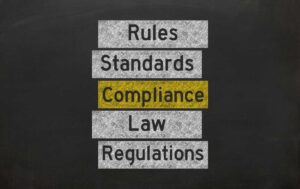Table of Contents
Legalities in Freelancing
Freelancing has become an increasingly popular way to earn a living. As the gig economy continues to grow, more people are leaving behind traditional 9-to-5 office jobs in favor of the flexibility and freedom of freelance work. However, with this freedom also comes important legal considerations that all freelancers need to be aware of to protect their work and rights.

This guide will provide an overview of key legal issues freelancers may encounter and steps they can take to cover their bases. Topics covered include copyrights, contracts, taxes, insurance, and record keeping. By understanding the legal side of freelancing, you can avoid potential problems down the road and focus on doing great work.
With some forethought and preparation, you can ensure your freelancing endeavor is set up for success while also protecting your interests. Whether you’re just starting out as a freelancer or have been working independently for years, it’s beneficial to have a grasp of the legalities involved. This guide aims to provide that understanding.
Copyrights – Legalities
Copyright protects original works of authorship, including literary, dramatic, musical, artistic, and other intellectual works. As a freelancer, it’s important to understand copyright law to protect your creations and avoid infringing on others’ rights.
Copyright Basics
- Copyright arises automatically when a work is fixed in a tangible form. Registration provides additional legal benefits but is not required.
- Copyright owners have exclusive rights to reproduce, distribute, publicly perform, publicly display, and make derivative works from the original.
- Copyright lasts for the life of the author plus 70 years. For works-for-hire, copyright lasts 95 years from publication or 120 years from creation.
Registering Copyright
- Registration establishes a public record of ownership and provides additional remedies in court like statutory damages and attorney’s fees.
- To register, file an application, and deposit copies of the work with the U.S. Copyright Office. The fee is $45 for an online application. You should consider taking legal advice to understand legalities concerning your geography.
Using Copyrighted Materials
- Obtain licenses or permission before reproducing portions of copyrighted works. Fair use provides a limited exception for things like commentary, criticism, news reporting, etc.
- When using others’ work, provide attribution and follow the terms of any Creative Commons licenses. Don’t claim their work as your own.
Protecting Your Content
- Include copyright notices (e.g. © [Your Name], 2024) on your work to inform the public of your rights.
- Only share originals with trusted clients. For wider distribution, use watermarks and lower-resolution versions.
- Issue DMCA takedown notices if your work is infringed online. Also, notify the website host.
- Consult an attorney regarding stronger protections like non-disclosure agreements or registering your site’s contents with the U.S. Copyright Office.
Contracts – Legalities
Contracts are a vital tool for freelancers to protect their rights and establish clear expectations with clients. Having a well-drafted contract reduces miscommunications and ensures both parties share an understanding of the work, compensation, timeline, rights, and other key details.

Importance of Contracts
- Define the work: The contract should lay out the scope of work, key deliverables, milestones, and responsibilities of both the client and freelancer. This prevents scope creep down the line.
- Establish payment terms: The contract should detail the project fee, payment schedule, invoice timeline, late fees, and reimbursement terms. This protects the freelancer from nonpayment or late payments.
- Clarify ownership/rights: The contract should state who owns the copyright and other intellectual property produced. Freelancers typically retain copyright.
- Manage expectations: Well-defined timelines, quality standards, approval processes, and other key expectations should be established. This reduces mismatched assumptions.
- Outline termination terms: The contract should explain the conditions under which either party can exit the project and any penalties that may incur.
Key Contract Clauses
Some important clauses to include:
- Scope of work
- Milestones and deliverables
- The payment amount and schedule
- Kill fees for early termination
- Ownership/IP rights
- Non-disclosure agreements
- Liability caps
Negotiation Tips
When negotiating contract terms, freelancers should:
- Seek fair and favorable terms, not just standard ones
- Be open to negotiation, but know your minimum requirements
- Focus on win-win outcomes that meet both parties’ core needs
- Clarify any vague language or assumptions
- Start positively and frame it as a collaborative discussion
- Leverage stats, benchmarks, and examples to support your case
- Don’t be afraid to walk away if core needs aren’t met
With well-crafted contracts in place, freelancers can take on projects with clarity and confidence. Defining the relationship upfront is mutually beneficial for all.
Non-Disclosure Agreements – Legalities
Non-disclosure agreements (NDAs) are important legal contracts that prohibit someone from sharing your confidential information, ideas, or materials. As a freelancer, you may want clients to sign an NDA to protect your intellectual property or trade secrets. Here’s what you need to know:
When to Use NDAs
Consider requiring an NDA if you:
- Develop proprietary methods, frameworks, or processes for clients
- Create products or technology with potential commercial value
- Provide services involving sensitive client information
Requiring an NDA prevents clients from taking your work and using or sharing it without your permission. It also gives you legal recourse if they violate the agreement.
Key Provisions
Your NDA should specify:
- Definition of confidential information
- Obligations to keep information confidential
- Restrictions on the use of materials
- Length of time-binding (2-5 years is common)
- Remedies if an agreement is breached
Get an attorney’s help to ensure your NDA is enforceable. Common provisions include non-compete, non-circumvent, and non-solicitation clauses.
Enforcing NDAs
If a client violates your NDA, you can take legal action to protect your rights, including:
- Demand they cease violating the agreement
- Seek monetary damages for losses incurred
- Request injunctive relief from the courts
- Pursue arbitration or mediation
An NDA gives you contractual rights. Consult an attorney to determine how to enforce your agreement if needed. With a properly written and executed NDA, you can take steps to protect your intellectual property as a freelancer.
Taxes – Legalities
As a freelancer, you are considered self-employed by the IRS, so you are responsible for paying your taxes on your freelance income. This includes federal income tax, self-employment tax, and any applicable state and local taxes.
Tax Obligations
You will need to file and pay taxes quarterly. This includes both income tax and self-employment tax, which is the equivalent of payroll taxes that an employer would normally withhold. The self-employment tax rate is 15.3%, which covers Social Security and Medicare taxes.
In addition to paying taxes quarterly, you will need to file an annual tax return reporting your total freelance income. The filing timeline is the same as for regular employees – taxes are due April 15 for the previous calendar year.
Filing as a Freelancer
When filing as a freelancer, you report your income and expenses on Schedule C of Form-1040. The net income from Schedule C is then carried over to the 1040 form to calculate how much tax you owe.
You can deduct all business expenses that are considered “ordinary and necessary” in your line of work. This includes expenses like:
- Equipment and software
- Home office expenses
- Travel and Transportation
- Advertising and marketing fees
- Training and education expenses
- Professional services like accountants or lawyers
Be sure to keep careful records of all business expenses so you can properly claim deductions and reduce your taxable income.
Quarterly Taxes
As a freelancer, you typically need to pay taxes quarterly instead of having taxes automatically withheld from a paycheck. You will need to calculate estimated taxes each quarter and submit payments to the IRS using Form 1040-ES.
The quarterly deadlines are:
- April 15
- June 15
- September 15
- January 15
If you fail to pay quarterly taxes, you may face underpayment penalties from the IRS. You can determine the required payment amount by looking at your income from the previous year or calculating 90% of your expected current year tax liability.
Deductions
Some key tax deductions for freelancers include:
- Home office – calculate the percentage of homes used for business
- Equipment and supplies
- Mileage for business travel
- Health insurance premiums
- Retirement account contributions (SEP IRA or Solo 401k)
- Business meals and entertainment (50% deductible)
- Continuing education and conferences
- Professional dues and subscriptions
Maximize your deductions by tracking all business expenses and maintaining detailed records. Consider working with an accountant to ensure you take all possible write-offs.
Insurance – Legalities
Insurance is crucial for freelancers to protect themselves financially and legally. Here are some of the main insurance options freelancers should consider:
Health Insurance
- Get an individual health insurance plan or join a group plan through a professional association. Individual plans can be purchased through healthcare.gov or directly from insurance providers.
- Consider a high-deductible plan paired with a Health Savings Account (HSA) to get tax-advantaged savings for medical expenses.
- Look into Association Health Plans which allow membership organizations to offer group coverage. These may have more affordable premiums.
Liability Insurance
- General liability insurance protects against claims of bodily injury or property damage caused by your business activities. It covers legal costs for defending against claims.
- Professional liability insurance (errors & omissions) covers claims arising specifically from your professional services and errors. This is important for consultants, designers, developers, writers, and other service providers.
Disability Insurance
- Provides income if you become injured or ill and cannot work. Look for “own occupation” coverage based on your inability to work your specific job.
- Short-term and long-term disability policies are available. Long-term may be up to 60% of income until retirement age.
Workmen’s Compensation
- Required in many states to cover medical care and lost wages for work-related illnesses or injuries. Look into your state’s requirements.
Having the proper insurance coverage allows freelancers to operate their businesses securely and avoid potentially massive risks and liabilities. Consult with an insurance agent to assess your specific needs and risks.
Getting Paid – Legalities
Getting paid is one of the most important aspects of freelancing. As a freelancer, you want to get paid fairly and on time for the work you do. Here are some tips on getting paid:
Invoicing
- Send a professional invoice with a clear description of the work, payment terms, due date, and your contact information.
- Set clear payment terms on your invoice such as net 30 days. This gives the client 30 days to pay the invoice from the date of receipt.
- Include all necessary billing information like your name/business name, address, and tax ID if required.
- Send the invoice as soon as the work is completed, don’t delay.
- Use invoicing software or templates to create professional-looking invoices quickly.
Payment Terms
- Communicate and agree upon payment terms with the client upfront before starting work. Typical terms are 50% upfront, and the remainder upon completion.
- For long-term projects, you may invoice every 2 weeks or monthly.
- Set a late fee amount if the client does not pay by the due date, for example, 3% per month.
Late Payments
- Send a friendly reminder before the due date so they can process payment.
- If unpaid past the due date, send a formal late notice asking for immediate payment.
- Be firm yet professional in following up on late payments. Don’t be afraid to elevate the issue.
- If you have a signed contract, the late fee clause helps apply pressure to pay.
Payment Methods
- Accept convenient payment methods for your clients like credit cards, Paypal, direct bank transfer etc.
- Don’t rely solely on checks which can be slower to clear or fraudulent. Require a cleared check before starting work.
- Use a payment processing service to quickly accept credit card payments even from international clients.
Record Keeping
- Keep detailed records of all invoices, payments, project expenses, and client communications.
- Stay organized with your finances to claim all deductions at tax time.
- Review records periodically to identify any unpaid invoices that need follow-up.
Record Keeping – Legalities
As a freelancer, keeping detailed records is crucial for protecting your rights, avoiding issues with clients, and handling your taxes properly. Thorough record-keeping and accounting can seem tedious, but it’s a basic legal requirement and best practice that pays off in the long run.
Accounting
- Use accounting software or spreadsheets to track all income and expenses. Log every payment, deposit, invoice, receipt, and bill.
- Create separate accounting profiles for each client to track payments and job expenses separately.
- Reconcile business accounts regularly to ensure records are accurate.
Retaining Records
- Keep records of all work products, communications, contracts, invoices, payments, and expenses for at least 3-5 years. Digital files take little storage space.
- For tax purposes, keep income statements, 1099 forms, business receipts, and expense documents for a minimum of 7 years.
- Organize records by year and client for easy reference. Back up files to guard against data loss.
Expenses
- Retain receipts and documentation for all business-related expenses. These may include equipment, software, travel, phone/internet, office supplies, marketing, professional services, and more.
- Deductible expenses must be considered “ordinary and necessary” for your work. Understand what qualifies before tax time.
Proof of Work
- Keep copies and drafts showing your work product and progress. Emails, screenshots, and revisions demonstrate you completed contracted work.
- If clients don’t pay, evidence of work performed gives leverage in recovering owed compensation.
Thorough accounting and diligent record retention protect freelancers legally and financially. Keep everything well organized from the start. Your future self will thank you when tax time comes.
Help for Legalities
At times, legal issues may arise in your freelancing work that requires professional assistance. Knowing when to seek legal help can prevent bigger problems down the road.
When to Hire a Lawyer
Though hiring a lawyer can be expensive, there are certain situations where their expertise is invaluable:
- If you are sued by a client for breach of contract, plagiarism, or other issues. Having a lawyer represent you can help navigate the legal system and protect your interests.
- If you have an intellectual property dispute, such as a copyright or trademark infringement. Lawyers can send official cease and desist letters as a first step.
- If you need assistance drafting solid contracts and legal agreements to protect yourself. Lawyers can review contracts or help create customized ones.
- If you are launching a new business venture or freelance service requiring business formation, shareholder agreements, or other complex legal needs.
Though you may attempt to handle minor legal matters yourself initially, know your limitations. Complexed legal issues often require professional legal assistance to resolve properly.
Legal Resources for Freelancers
If hiring a lawyer is beyond your budget, there are some free and low-cost legal resources available:
- LegalZoom and RocketLawyer offer affordable online legal services for common documents like contracts and LLC formation. However, they lack personal legal advice.
- LawHelp.org and LegalAid provide free legal resources and help locating pro bono lawyers for low-income individuals.
- Law schools often have legal clinics where students can assist you at no cost under attorney supervision.
- Legal insurance through organizations like ARAG can provide access to lawyers for a monthly fee.
- The American Bar Association and state bar associations have lawyer referral services that connect you with lawyers providing free or discounted initial consultations.
Taking advantage of these resources allows you to get basic legal questions answered and documents reviewed even with limited funds. But they may not suffice for handling complex legal matters in place of a hired lawyer.
Conclusion – Legalities around Freelancing
In conclusion, freelancers must take steps to legally protect themselves and their work to thrive in the modern economy. While navigating legal issues like copyrights, contracts, taxes, and insurance may seem daunting initially, being proactive saves freelancers significant time, money, and headaches down the road.

The key is staying organized, documenting agreements, keeping careful records, and being vigilant about your rights and payment. Though legal help can provide useful guidance, a freelancer’s best asset is themselves. Know your worth, value your work, and don’t be afraid to walk away from unfair deals. With the proper legally savvy approach, freelancers can focus on doing their best work while safeguarding their interests.
For those needing a legal primer, this guide covers the key basics of copyright, contracts, NDAs, taxes, insurance, invoices, and record keeping. However, every situation is unique. Be sure to consult a lawyer for specific legal counsel pertaining to your freelance work and rights. The time and money invested will pay off exponentially when conflicts or questions arise.
Additional resources about legalities encountered in freelancing:
- U.S. Copyright Office: copyright registration, FAQs
- IRS Publication on Self-Employment Tax
- Freelancers Union on contracts, insurance, finances
- Nolo on legal issues for freelancers and consultants
With the proper legalities and related diligence and care, freelancers can confidently take control of their work and build sustainable, successful careers. The independence and flexibility of freelancing are empowering but also require being proactive about protecting your rights, work, and income. Arm yourself with knowledge, document everything, and don’t be afraid to ask for help. By taking the right legal steps, you can focus on doing what you love.
If you are looking to know about the legalities related to Indian Law related to freelance business then connect with MumbaiFreelancer.com




